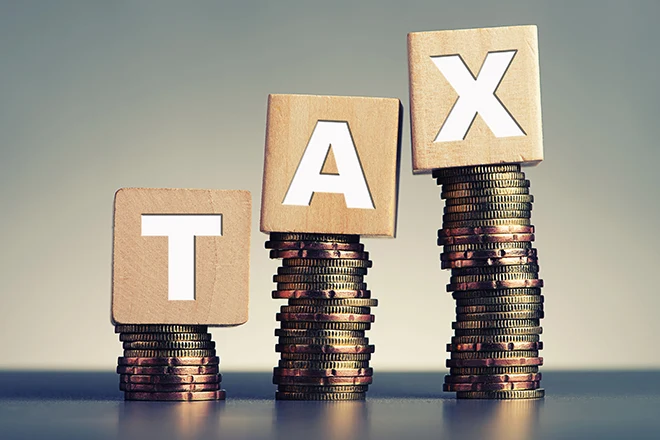How to Manage Crypto Taxes in Thailand: What Thai Traders Should Do in 2025
June 11, 2025

How to Manage Crypto Taxes in Thailand: A Practical Guide for 2025
So you’re trading crypto in Thailand—maybe casually, maybe seriously. Either way, 2025 isn’t the year to stay in the dark about taxes. Yes, the tax on crypto in Thailand is real, and yes, you’re expected to report it. But what exactly do you need to do?
Here’s a no-fluff, step-by-step breakdown of how Thai traders can handle crypto taxes properly this year.

Step 1: Understand What’s Taxed (and Why)
The Revenue Department in Thailand classifies most crypto activities as taxable. If you’ve made a profit from trading, mining, staking, or even selling NFTs, that income falls under personal income tax laws. This isn’t new—it’s been on the books since 2022.
Let’s say you bought ETH at ฿40,000 and sold it for ฿60,000. That ฿20,000 profit? Taxable. If you’re earning staking rewards from platforms like Lido or getting an airdrop of new tokens with value? Those count, too.
Even though the rules are clear on paper, there’s still confusion around more complex situations—like token swaps or NFT royalties. But the general rule is this: if you’ve gained something with real-world value, it’s probably taxable.

Step 2: Know the Two Main Types of Crypto Tax in Thailand
Crypto income in Thailand typically falls under two categories:
- Capital Gains Tax, which is based on profits from selling digital assets. These gains are treated as personal income and taxed progressively (from 5% to 35% depending on your total annual income).
- Withholding Tax (15%), which is mostly applied to crypto income from foreign platforms. This doesn’t usually affect trades on local Thai exchanges, but it’s something to watch if you use global services.
Just because you’re not automatically withheld doesn’t mean you’re exempt. You’ll still need to declare it yourself.

Credit from : BankRate
Step 3: Use Thai-Licensed Exchanges to Simplify Compliance
If you trade through registered Thai platforms like Bitkub, Zipmex, or Binance TH, you might avoid the 15% withholding tax. That’s a benefit of staying within the licensed system.
But there’s a tradeoff—these platforms may report your activity to the authorities when requested. Your trading records aren’t private anymore, so if you’re thinking about not filing at all, this strategy won’t keep you invisible.
Still, using local exchanges can make tracking transactions and preparing for tax season much easier.

Step 4: Keep Solid Records (Start Now)
You’ll need a clear picture of what you earned, when you earned it, and how much each asset was worth in Thai baht at the time of the transaction. This applies to everything—sales, swaps, staking rewards, NFT transfers, and more.
Make sure you keep:
- Buy/sell dates and prices
- Exchange platforms used
- The value in THB at the time
- The gain or loss per transaction
A spreadsheet works fine if you’re organized. But if you’ve got hundreds of trades or multiple wallets, it’s worth looking into crypto tax software or hiring an accountant who understands Web3.

Step 5: File Before the Deadline—and File It Right
Thailand’s tax filing season typically ends in March for the previous calendar year. Crypto profits should be reported under “Other Income” or the appropriate section of your personal income tax return.
Even if you only earned a few thousand baht in gains, the rules say you’re supposed to report them. While enforcement hasn’t been heavy-handed in the past, that could change quickly—especially as regulators move toward international standards like the OECD’s crypto reporting framework.
If you’re unsure how to file properly, speak with a tax professional who’s familiar with crypto. Don’t just guess.
Step 6: Be Realistic About Enforcement in 2025
Many traders still think they’re flying under the radar. And for now, some are. But things are shifting—fast. Thai regulators are already working more closely with local exchanges, and banks are starting to flag large incoming crypto-related transfers.
Even decentralized platforms aren’t as off-grid as they once were. As blockchain analytics improves and more countries demand cross-border data sharing, the idea that crypto is totally untraceable is outdated.
So while the audit risk might seem low, it won’t stay that way forever.
Final Thoughts: Crypto Tax Doesn’t Have to Be a Headache
If you’re trading or earning in crypto, don’t treat taxes as an afterthought. Thailand expects you to report and pay your share—and the sooner you get your system in place, the better.
Understanding the tax on crypto in Thailand is one thing. Acting on it? That’s where most people fall short.
Take the time to organize your records, figure out what’s taxable, and stay honest in your filings. Because even if enforcement isn’t perfect yet, getting ahead of the rules now can save you a lot of stress down the line.
